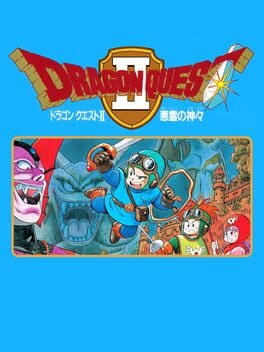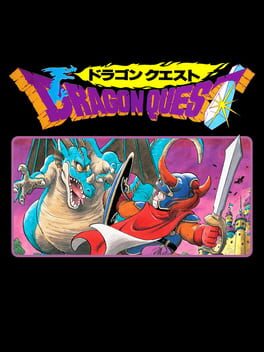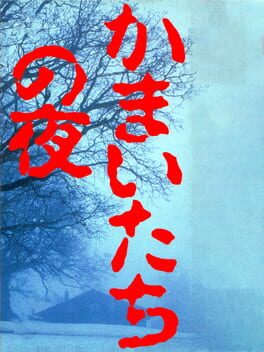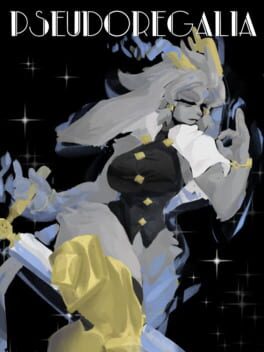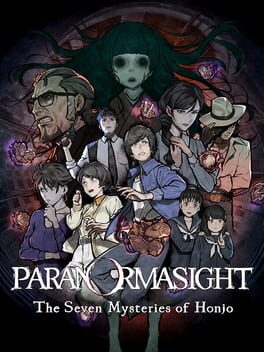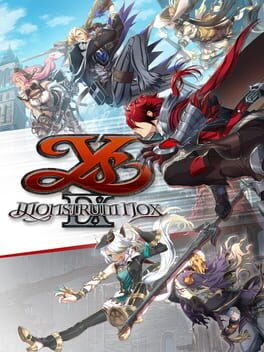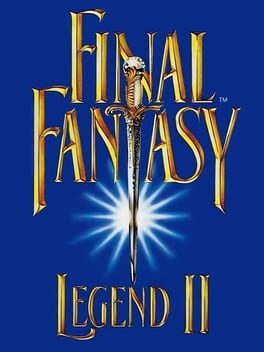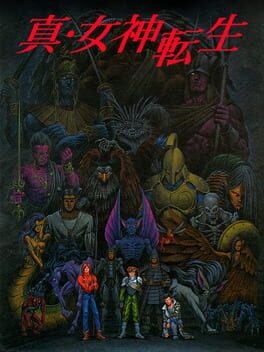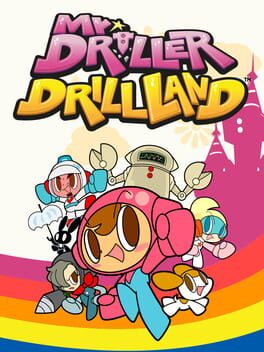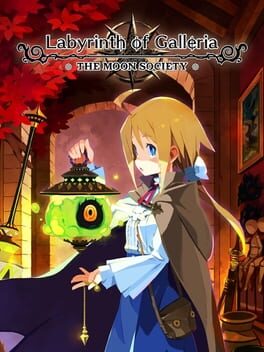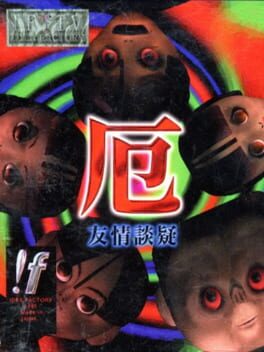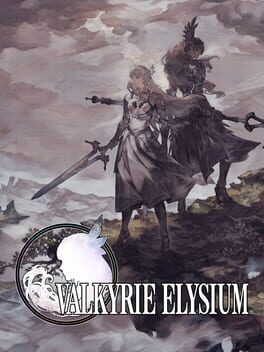1993
(snes version)
A lot of what Dragon Quest is known for both mechanically and tonally was set up here--it's lighter than the original, with a greater emphasis on ~adventure~ and imaginative locations and fun little episodes, as well as more complex battles--and there were lots of moments where I could see the vision and was tricked (for a few minutes at least) into thinking it might be a masterpiece. Discovering the land from the first game, the bunny girl colosseum, the prince getting sick...was soul-breakingly mean but also charming, the haunting metaphysics of the final dungeon...so many places and moments that will stick with me.
Unfortunately this thing just ain't tuned quite right! It's a real blockbuster style sequel to the deeply contained, considered original, casting its net wide and catching less. It's too big for its own good, too bloated, and the near spiritually perfect number crunching of the first is now kind of a mess. Worst of all, in-between those great moments is...not much, emotionally. It's like 80% tonally empty, melancholic weight replaced with the dull reality of adventuring the world.
More water, more mountains, more slimes, and less to show for it all.
A lot of what Dragon Quest is known for both mechanically and tonally was set up here--it's lighter than the original, with a greater emphasis on ~adventure~ and imaginative locations and fun little episodes, as well as more complex battles--and there were lots of moments where I could see the vision and was tricked (for a few minutes at least) into thinking it might be a masterpiece. Discovering the land from the first game, the bunny girl colosseum, the prince getting sick...was soul-breakingly mean but also charming, the haunting metaphysics of the final dungeon...so many places and moments that will stick with me.
Unfortunately this thing just ain't tuned quite right! It's a real blockbuster style sequel to the deeply contained, considered original, casting its net wide and catching less. It's too big for its own good, too bloated, and the near spiritually perfect number crunching of the first is now kind of a mess. Worst of all, in-between those great moments is...not much, emotionally. It's like 80% tonally empty, melancholic weight replaced with the dull reality of adventuring the world.
More water, more mountains, more slimes, and less to show for it all.
1993
(snes version)
All but perfectly composed. The way the world folds out from your central location (the place you save), the magnificent numbers tuning where a 5 is the most beautiful thing you've ever seen, the hum of combat stripped to its essentials and the light open-world design that encourages interacting with its residents...Dragon Quest basically one-and-done'd it all. About the only thing I have any desire to ding it for is that magic is largely useless outside of healing and traversal, half your arsenal profoundly unnecessary in a game otherwise so tightly formed.
But honestly who cares when faced with Dragon Quest's greatest strength: its tone. Despite the image DQ has accrued of being lovely and charming and nostalgic and warm, this game is a profoundly sad experience. The world is dead. Towns are in ruins. Poison litters the ground as naturally as water and there are more bloodthirsty, alien monsters than there are people anymore. And every person you talk to time and time again puts it all on you: you have to save us, you are the only one who can. There are no party members, it's a journey of solitude. No friends to make, no campfire stories or wacky hijinx to get into, just the one thing you were born to do. You have no choice; it's in your blood. You can't even die, fate and duty so strong that you are brought back again and again until you succeed. Every inch of this game is oozing a melancholic weight heavier than just about anything in gaming. It's no coincidence that Koichi Sugiyama's (god not rest his soul) overworld theme here, the song you are treated to the most, brings to mind the fog before a rain more than any idea of adventure.
Palpable stuff! Stuff that is astounding in its own right but which also builds to a transcendent release at the end, one of the great narrative moments in a game, when you finally accomplish your goal and the world explodes into flowers and all the monsters vanish and everyone celebrates and you, the hero, freed from the grip of responsibility and expectation, life now perfectly without purpose, wander off to new worlds. (something something about killing the dark fascist lord and then rejecting your noble monarchal position to live free from systems of power)
I repeat: all but perfectly composed.
All but perfectly composed. The way the world folds out from your central location (the place you save), the magnificent numbers tuning where a 5 is the most beautiful thing you've ever seen, the hum of combat stripped to its essentials and the light open-world design that encourages interacting with its residents...Dragon Quest basically one-and-done'd it all. About the only thing I have any desire to ding it for is that magic is largely useless outside of healing and traversal, half your arsenal profoundly unnecessary in a game otherwise so tightly formed.
But honestly who cares when faced with Dragon Quest's greatest strength: its tone. Despite the image DQ has accrued of being lovely and charming and nostalgic and warm, this game is a profoundly sad experience. The world is dead. Towns are in ruins. Poison litters the ground as naturally as water and there are more bloodthirsty, alien monsters than there are people anymore. And every person you talk to time and time again puts it all on you: you have to save us, you are the only one who can. There are no party members, it's a journey of solitude. No friends to make, no campfire stories or wacky hijinx to get into, just the one thing you were born to do. You have no choice; it's in your blood. You can't even die, fate and duty so strong that you are brought back again and again until you succeed. Every inch of this game is oozing a melancholic weight heavier than just about anything in gaming. It's no coincidence that Koichi Sugiyama's (god not rest his soul) overworld theme here, the song you are treated to the most, brings to mind the fog before a rain more than any idea of adventure.
Palpable stuff! Stuff that is astounding in its own right but which also builds to a transcendent release at the end, one of the great narrative moments in a game, when you finally accomplish your goal and the world explodes into flowers and all the monsters vanish and everyone celebrates and you, the hero, freed from the grip of responsibility and expectation, life now perfectly without purpose, wander off to new worlds. (something something about killing the dark fascist lord and then rejecting your noble monarchal position to live free from systems of power)
I repeat: all but perfectly composed.
A game I was done with a good 15 hours before it was finished and which I've only become more done with the more time that passes. Absolutely at its best when it's acting as a non-stop comedy adventure flying between wildly incongruous tones in this goofy road-trip cat-and-mouse chase. The characters? Charming! The jokes? Funny! The thrills? You better believe they're thrilling! Unimpeachable combat and constant amusement park minigame switching makes for a cotton candy delight that borders on transcendent and at moments had me convinced it was the best game ever.
Problem with cotton candy though is that you put it in water and realize: oh it's actually nothing. Rebirth is packed to the gills and yet completely empty, gutting the original's story for sophomoric multiverse shenanigans that flatten any emotional or thematic depth. Worse, the game is too scared to actually do anything with the new ideas it does have, constantly pulling back at even the slightest glimpse of genuine intrigue until the entire game is rendered a purgatory of non-movement. Nothing happens! Please let something happen!! The dungeons are a bore and just about every other event is so blatantly shoehorned in to fill for time that even if you ignore sidequests and mainline this thing, the pace is genuinely baaaaad. Just the most "too much" game I've ever played, maybe.
So yeah, loved it at points, gave me a dull headache at others, and is spoiling like milk in my brain. (Yuffie great tho--they did justice to my girl)
Problem with cotton candy though is that you put it in water and realize: oh it's actually nothing. Rebirth is packed to the gills and yet completely empty, gutting the original's story for sophomoric multiverse shenanigans that flatten any emotional or thematic depth. Worse, the game is too scared to actually do anything with the new ideas it does have, constantly pulling back at even the slightest glimpse of genuine intrigue until the entire game is rendered a purgatory of non-movement. Nothing happens! Please let something happen!! The dungeons are a bore and just about every other event is so blatantly shoehorned in to fill for time that even if you ignore sidequests and mainline this thing, the pace is genuinely baaaaad. Just the most "too much" game I've ever played, maybe.
So yeah, loved it at points, gave me a dull headache at others, and is spoiling like milk in my brain. (Yuffie great tho--they did justice to my girl)
1994
Masterpiece obsession simulator. A game that invites the mind to spiral and to be consumed, that encourages paranoid uncertainty. Taking the shin-honkaku (new traditionalist) mystery into a new medium, the game obsesses over its own artifice and form, twisting what should be a classic whodunnit into a bold post-modern labyrinth of different genres, meta-reflections, and player implications. A game that feels like no matter how much you dig, there is no bottom. Even when you "beat" the game, solve the mystery, it only reveals more to you and in turn uncovers more questions.
What is at the bottom of Kamaitachi no Yoru? Strip it all back, find its heart, and what exactly is this game? That is the real mystery. And it's a mystery you could spend a lifetime trying to solve.
More thoughts here
What is at the bottom of Kamaitachi no Yoru? Strip it all back, find its heart, and what exactly is this game? That is the real mystery. And it's a mystery you could spend a lifetime trying to solve.
More thoughts here
2023
A game where it is hard for me to not get stuck on what I wish it was instead of what it is. I wish every word of dialogue was excised--the little that is here is unnecessary and clearly not one of the developer's specialties, god bless em! I wish there were more interesting combat counters instead of exactly one (the final boss, which is a blast). I wish all the systems were slightly less finicky in how they interacted with each other. I wish, I wish, I wish. I suppose that's appropriate for a game about wishing and dreaming.
The mood is potent, the map full of delightful surprises, the movement near sublime. For a large portion, this game really is a dream, this joyful and mysterious celebration of our bodies and our architecture playing out like hazed memories (aided by the fuzzy, chunky aesthetic) of being a kid exploring, hopping and climbing around and putting yourself in a lot of potential bone-breaking scenarios. A very nostalgic game!
Incredible first release, especially from a solo dev. Freak-mode talent
The mood is potent, the map full of delightful surprises, the movement near sublime. For a large portion, this game really is a dream, this joyful and mysterious celebration of our bodies and our architecture playing out like hazed memories (aided by the fuzzy, chunky aesthetic) of being a kid exploring, hopping and climbing around and putting yourself in a lot of potential bone-breaking scenarios. A very nostalgic game!
Incredible first release, especially from a solo dev. Freak-mode talent
A playful, deeply meta-textual adventure game on the relationship of history, fiction, and place, Paranormasight is full of lies revealing truths and truths revealing lies. It is a game that begins with the classic disclaimer "events, places, legends...are fictional" only to immediately show real places and share real legends; a game where player is repeatedly forced to recognize that It Is A Game, audience directly implicated in the events that unfold. Slowly it crawls out of the TV to envelop you like a ghost, showing how fiction and the past shape the present, real and unreal an impossible to untangle knot.
This is all familiar, expected thematic ground for writer Takanari Ishiyama, who's earlier adventure titles reveal a mind deeply concerned with games' potential to involve both player and the real world in ways difficult for other mediums. But Paranormasight, his triumphant return to the genre, might also be his peak thus far, managing all of this while also being a nonstop, genre-shifting thrill ride, every inch as fun as it is smart.
2023 is a year absolutely packed to bursting with significant, major games. Little Paranormasight, quietly released with little fanfare, could go toe-to-toe with any of 'em.
more thoughts here
This is all familiar, expected thematic ground for writer Takanari Ishiyama, who's earlier adventure titles reveal a mind deeply concerned with games' potential to involve both player and the real world in ways difficult for other mediums. But Paranormasight, his triumphant return to the genre, might also be his peak thus far, managing all of this while also being a nonstop, genre-shifting thrill ride, every inch as fun as it is smart.
2023 is a year absolutely packed to bursting with significant, major games. Little Paranormasight, quietly released with little fanfare, could go toe-to-toe with any of 'em.
more thoughts here
2019
This review contains spoilers
Ys IX wants to die. It is a wild game of tug-of-war between celebrating and despairing the conservative realities the series has found itself trapped in (ie legacy and tradition). Here, the player's efforts to supress a revolt against colonial oppressors is revealed to be a fairly explicit critique of itself and the games industry writ large; a stagnant place obsessed with iteration and product and "progress", where new games aren't games but IP--intellectual property--and gamers delight in sales and Metacritic scores.
Using its rigid, episodic structure and (in normal mode) combat that can be solved without a thought in the brain, the game acts much as the prison that the narrative centers around, lulling the player into a sort of dull comfort with the lack of freedom afforded. It can be maddening watching the wheels spin; by the end you hardly want to leave. The NPCs littering the city are so charming after all, the cast so nice, the battles like a warm bath.
So when the villain is revealed to be, on some level, the very history of Ys, which is responsible for the prison that contains you, a well of complex emotions is born. Adol fights Adol, but he can never win or lose because Ys cannot die as long as money is to be made. It is like the cast: a hommonculi to be born and reborn for eternity until its use runs dry.
And what the game asks at the end, and doesn't really have an answer for is as simple and complex as a question can get: is that such a bad thing? Part of it says no, that these memories are valuable, that they have connected people and helped others, that the comfort expected from the series provides what so many games strive for--a respite from the world. But another part the game is there, and it cries "yes."
Ys is getting another game soon. It couldn't not. 10 is looking a lot like 8 and 9 while also bringing in trends from other games. It looks good. I'm looking forward to it.
more thoughts here
Using its rigid, episodic structure and (in normal mode) combat that can be solved without a thought in the brain, the game acts much as the prison that the narrative centers around, lulling the player into a sort of dull comfort with the lack of freedom afforded. It can be maddening watching the wheels spin; by the end you hardly want to leave. The NPCs littering the city are so charming after all, the cast so nice, the battles like a warm bath.
So when the villain is revealed to be, on some level, the very history of Ys, which is responsible for the prison that contains you, a well of complex emotions is born. Adol fights Adol, but he can never win or lose because Ys cannot die as long as money is to be made. It is like the cast: a hommonculi to be born and reborn for eternity until its use runs dry.
And what the game asks at the end, and doesn't really have an answer for is as simple and complex as a question can get: is that such a bad thing? Part of it says no, that these memories are valuable, that they have connected people and helped others, that the comfort expected from the series provides what so many games strive for--a respite from the world. But another part the game is there, and it cries "yes."
Ys is getting another game soon. It couldn't not. 10 is looking a lot like 8 and 9 while also bringing in trends from other games. It looks good. I'm looking forward to it.
more thoughts here
Look, the problem is obvious: if you want to be able to type freely in a text-based game, then you need to be able to generate responses to whatever the player might say.
But that's not Portopia. Portopia is a game with a carefully defined set of words the player can use and asks for specific responses to specific moments. That's like the point. That's half the puzzle of the game.
So if you smash in this generative text thing only on the player's side.......it won't work! Characters won't have anything to say! You still have to be just ask specific here as in the original because if you don't then you won't get any answers besides "Hm? Huh?" And without the knowledge of what your limitations are--what you can and can't do--it's no longer a puzzle. It's just a brick wall to smash your face into.
Even at free, it is baffling they let this out into the public! The idea, in theory, is interesting! Keep it to yourself!
But that's not Portopia. Portopia is a game with a carefully defined set of words the player can use and asks for specific responses to specific moments. That's like the point. That's half the puzzle of the game.
So if you smash in this generative text thing only on the player's side.......it won't work! Characters won't have anything to say! You still have to be just ask specific here as in the original because if you don't then you won't get any answers besides "Hm? Huh?" And without the knowledge of what your limitations are--what you can and can't do--it's no longer a puzzle. It's just a brick wall to smash your face into.
Even at free, it is baffling they let this out into the public! The idea, in theory, is interesting! Keep it to yourself!
While SaGa 2 (necessarily) loses some of what makes the original such a wildly electric piece of gaming--the punk meta plays on a nascent genre's conventions, the puzzle-like joy of having to relearn how an RPG works at the most basic level, the absurdist story beats that no publisher in their right mind would ever allow--it gains an equal amount in return.
For starters, if someone were to look at the game at literally its most surface level, they'd be forgiven for thinking this sequel was a genuine generational leap and not a sequel that released within a year on the same hardware. Suddenly sprites are expressive and varied, detail and shadow give environment dimensionality, and the battle UI is reworked into something wonderfully clear and elegant.
Mechanically it does much the same, expanding on the first's to create something fuller, more rounded. This move towards polish may or may not be to your taste (in many ways I like the sharp and jagged nature of the first more) but it is hard to argue much with the results. With an extra class type, the robot, the player sees a real jump in expression and experimentation. Where once the puzzle was understanding systems, now it is solving how to beat and rebeat the game with its dozen or so possible team compositions.
And while I will always prefer the world and the moments of Saga 1, that is not to imply this isn't also incredibly strong on that front, too. Kawazu is very quietly one of RPGs greatest writers, after all; there are few in the entire medium as capable at concise, evocative storytelling. He can pack an entire world into a sentence, give birth to daydreams on daydreams with little more than a single NPC and a single line. The world populated by giants who made themselves small and live in secret among "normal" sized folk in particular had me hooting and hollering at its absolute imagination.
The real magic is that it isn't just imagination--it's a pretty thematically complex, satisfying work as well. SaGa 2 is a game deeply concerned with authority and power. Whispers of the supreme come up again and again and every time are proven to be lies, fictions. The player character's dad, idolized since childhood, is an absentee reckless fool who, though supposedly on the right side, is wrapped up with everyone else in a meaningless play for power and control that is little more than a fairy tale. What SaGa 2 asks is: does that matter? Does it matter that these were invented, were imagined? Does it matter that it is all quite literally (as revealed) a game; nothing but programming? We believe in them. And when enough believe, they become real.
So yeah, the the original is held closer and dearer to my heart because I am a broken freak of a human. But the sequel is a massive success in its own right, a bold declaration that the first was not an accident or an anomaly, but the beginning of one of the greatest video game series we've ever been blessed with.
more thoughts here: https://www.tsundokudiving.com/p/talking-games-saga-2the-final-fantasy
For starters, if someone were to look at the game at literally its most surface level, they'd be forgiven for thinking this sequel was a genuine generational leap and not a sequel that released within a year on the same hardware. Suddenly sprites are expressive and varied, detail and shadow give environment dimensionality, and the battle UI is reworked into something wonderfully clear and elegant.
Mechanically it does much the same, expanding on the first's to create something fuller, more rounded. This move towards polish may or may not be to your taste (in many ways I like the sharp and jagged nature of the first more) but it is hard to argue much with the results. With an extra class type, the robot, the player sees a real jump in expression and experimentation. Where once the puzzle was understanding systems, now it is solving how to beat and rebeat the game with its dozen or so possible team compositions.
And while I will always prefer the world and the moments of Saga 1, that is not to imply this isn't also incredibly strong on that front, too. Kawazu is very quietly one of RPGs greatest writers, after all; there are few in the entire medium as capable at concise, evocative storytelling. He can pack an entire world into a sentence, give birth to daydreams on daydreams with little more than a single NPC and a single line. The world populated by giants who made themselves small and live in secret among "normal" sized folk in particular had me hooting and hollering at its absolute imagination.
The real magic is that it isn't just imagination--it's a pretty thematically complex, satisfying work as well. SaGa 2 is a game deeply concerned with authority and power. Whispers of the supreme come up again and again and every time are proven to be lies, fictions. The player character's dad, idolized since childhood, is an absentee reckless fool who, though supposedly on the right side, is wrapped up with everyone else in a meaningless play for power and control that is little more than a fairy tale. What SaGa 2 asks is: does that matter? Does it matter that these were invented, were imagined? Does it matter that it is all quite literally (as revealed) a game; nothing but programming? We believe in them. And when enough believe, they become real.
So yeah, the the original is held closer and dearer to my heart because I am a broken freak of a human. But the sequel is a massive success in its own right, a bold declaration that the first was not an accident or an anomaly, but the beginning of one of the greatest video game series we've ever been blessed with.
more thoughts here: https://www.tsundokudiving.com/p/talking-games-saga-2the-final-fantasy
2023
A very fun roller-coaster that sands down the quirks of its original both mechanically and aesthetically in the always dreaded attempt to be "modernized" and "more in line with the expectations of today's players" resulting in a product that feels...well, more like a product. It's designed to appeal to ideas that games age, that good game design is some objective thing to be solved.
Still, unlike some of my less liked remakes, this one is done by the confident and immensely strong current Capcom, and is based off of an absolute nuclear level classic. Is it a safer experience than I wish it was? Yeah. But I ain't about to pretend that I didn't have a blast, even though it is shocking how little the entire experience has stuck in my mind.
Still, unlike some of my less liked remakes, this one is done by the confident and immensely strong current Capcom, and is based off of an absolute nuclear level classic. Is it a safer experience than I wish it was? Yeah. But I ain't about to pretend that I didn't have a blast, even though it is shocking how little the entire experience has stuck in my mind.
1992
Unlike more recent entries in the Megami Tensei mega-franchise that use the occult as largely aesthetic backdrops--a sort of calling card that "This Is An MT Game" that serves little other purpose--you can almost believe Shin Megami Tensei is cursed. There is still a sense of danger to this one thirty years later, a sense that it was developed by people genuinely deeply immersed in the spiritual and occult.
And that makes sense! The creators of SMT all but certainly grew up within Japan's occult boom of the 70s which also happened to experience a second life around the time of the game's release. Shows on spirit photography, magazines about urban legends and UFOs, the reemergence of yokai as pop culture staples...it wasn't exactly a challenge to be swallowed up by it all.
Which is what it feels like playing this game--being swallowed up. From moment one it is obtuse and strange; you press start and immediately know: something is wrong. The moon hangs over the world map; obscure net boards share occult programs; serial murders lock the streets down with no answers and dreams seem to seep into reality. It presents a Tokyo of ley lines and crimes, where this monumental metropolis we have constructed is a suffocating, diseased machine we choose to rot in. Playing SMT is, I imagine, what it feels like to genuinely believe in conspiracies and spirits.
And then the twist happens. I won't say what it is on the off-chance you haven't been spoiled, but it is a stunningly bold move that hasn't lost a single ounce of its power and which completely flips the entire game on its head. Suddenly history and politics and reality come crashing headfirst into the spiritual and the skin is peeled off. It is no longer a seedy world of mysteries. It is a nightmare made real. It is, for my money, one of THE great moments in games.
Sure, as the series has gone on the gameplay of this original has been bested, as have the graphics and the music and even the story. But there's nothing else out there quite like this, a masterpiece of video game feeling.
And that makes sense! The creators of SMT all but certainly grew up within Japan's occult boom of the 70s which also happened to experience a second life around the time of the game's release. Shows on spirit photography, magazines about urban legends and UFOs, the reemergence of yokai as pop culture staples...it wasn't exactly a challenge to be swallowed up by it all.
Which is what it feels like playing this game--being swallowed up. From moment one it is obtuse and strange; you press start and immediately know: something is wrong. The moon hangs over the world map; obscure net boards share occult programs; serial murders lock the streets down with no answers and dreams seem to seep into reality. It presents a Tokyo of ley lines and crimes, where this monumental metropolis we have constructed is a suffocating, diseased machine we choose to rot in. Playing SMT is, I imagine, what it feels like to genuinely believe in conspiracies and spirits.
And then the twist happens. I won't say what it is on the off-chance you haven't been spoiled, but it is a stunningly bold move that hasn't lost a single ounce of its power and which completely flips the entire game on its head. Suddenly history and politics and reality come crashing headfirst into the spiritual and the skin is peeled off. It is no longer a seedy world of mysteries. It is a nightmare made real. It is, for my money, one of THE great moments in games.
Sure, as the series has gone on the gameplay of this original has been bested, as have the graphics and the music and even the story. But there's nothing else out there quite like this, a masterpiece of video game feeling.
Gut reaction having never played Mr. Driller in my life: this might be a perfect game.
What initially seems almost mind-numbingly simple (there's only one button past the d-pad) reveals its ocean of thrills and depth of thought within 10 minutes of playing. There's such an elegant, beautiful blend of control and chaos here that has your brain working overtime planning combos and positioning while an avalanche is constantly centimeters away from smashing you to dust. The feeling of escaping the mounting insanity above you by the skin of your teeth? Second to none. Sometimes it all gets so crazy that I start laughing like a maniac when I die.
And that's only the classic Mr. Driller mode! Five or so other modes also exist to carefulyl twist and invert the basic mechanics in awe-inspiringly clever ways. Suddenly it is a measured RPG, a tense game of chase, a chaotic roguelike. Playing all of them is to fully explore the potential of even the most simple ideas. The whole world is contained in those little colored blocks, I swear.
AND on top of that, this is Namco when they were at their peak! The menus! The UI! The music and style and design! Literally can't get better!
The whole package just expresses a pure joy and a celebration of play. Distilled video game goodness. A constantly blooming garden of fun.
Also I love holes. So bonus points for that.
What initially seems almost mind-numbingly simple (there's only one button past the d-pad) reveals its ocean of thrills and depth of thought within 10 minutes of playing. There's such an elegant, beautiful blend of control and chaos here that has your brain working overtime planning combos and positioning while an avalanche is constantly centimeters away from smashing you to dust. The feeling of escaping the mounting insanity above you by the skin of your teeth? Second to none. Sometimes it all gets so crazy that I start laughing like a maniac when I die.
And that's only the classic Mr. Driller mode! Five or so other modes also exist to carefulyl twist and invert the basic mechanics in awe-inspiringly clever ways. Suddenly it is a measured RPG, a tense game of chase, a chaotic roguelike. Playing all of them is to fully explore the potential of even the most simple ideas. The whole world is contained in those little colored blocks, I swear.
AND on top of that, this is Namco when they were at their peak! The menus! The UI! The music and style and design! Literally can't get better!
The whole package just expresses a pure joy and a celebration of play. Distilled video game goodness. A constantly blooming garden of fun.
Also I love holes. So bonus points for that.
1996
This review contains spoilers
A bizarre nightmare of mounting absurdist nihilism heavily influenced by the works of classic horror manga (going so far as to have Hideshi Hino, one of the kings of that era, in charge of character design), Yaku gradually reveals itself as a deeply metatextual curse; a malevolent, mischievous curse intent on tormenting the player.
Making heavy use of the zapping system, the game taunts answers, meaning, endings. It concludes with a literal question mark and directly gives the players hints as to a perfect run--a complex playthrough where all the right choices are made at all the right times--and promises a "secret" that is your job to uncover. But none of that is true.
Answers don't exist.
Meaning is a lie.
The player is made to replay its story of nonsense nightmares, repeat tragedy and despair, actualize the cycle of violence and pain that defines that defines the characters all in some impossible effort for satisfaction and a conclusion that doesn’t exist.
It is cruel and frustrating, a shambling game that feels like it was constructed with rotting wood and frayed tape, developed by someone raised in the dirt beneath society. It laughs as it pushes against one of the fundamental understanding of games (one which has only become more and more pronounced in the mainstream space): that they should be fun, satisfying, make the player feel good and respected. It is a game that wants to be hated.
At one point the villain looks past the screen and into you, the player. They tell you that you can hate the game, you can tell your friends it is awful, write the worst reviews you can imagine, do everything you can to tank its reputation; they tell you it doesn’t bother them because it’s all a game; it, and the curse within it, is one big lie of make-believe told through code, so none of it matters a single bit…right?
Today, the game is remembered in Japan as a classic of kusoge.
The curse spreads.
Making heavy use of the zapping system, the game taunts answers, meaning, endings. It concludes with a literal question mark and directly gives the players hints as to a perfect run--a complex playthrough where all the right choices are made at all the right times--and promises a "secret" that is your job to uncover. But none of that is true.
Answers don't exist.
Meaning is a lie.
The player is made to replay its story of nonsense nightmares, repeat tragedy and despair, actualize the cycle of violence and pain that defines that defines the characters all in some impossible effort for satisfaction and a conclusion that doesn’t exist.
It is cruel and frustrating, a shambling game that feels like it was constructed with rotting wood and frayed tape, developed by someone raised in the dirt beneath society. It laughs as it pushes against one of the fundamental understanding of games (one which has only become more and more pronounced in the mainstream space): that they should be fun, satisfying, make the player feel good and respected. It is a game that wants to be hated.
At one point the villain looks past the screen and into you, the player. They tell you that you can hate the game, you can tell your friends it is awful, write the worst reviews you can imagine, do everything you can to tank its reputation; they tell you it doesn’t bother them because it’s all a game; it, and the curse within it, is one big lie of make-believe told through code, so none of it matters a single bit…right?
Today, the game is remembered in Japan as a classic of kusoge.
The curse spreads.
2022
There's little fat to Valkyrie Elysium. It barely even has skin. In the place of a body is a bony, muscular action gauntlet, an exhausting marathon of violence acting as metaphor for the deeply entwined relationship of soul, body, and place and reflecting the protagonist's self-actualization as they come to understand this. Story creeps in slowly and lightly, hiding much of itself to incurious players in an effort to reflect the player character. They are born as the game starts, given fully and unquestioningly to their singular mission, that mission that defines nearly all games: save the world through force and violence.
Except that world is already gone. Largely thanks to budgetary constraints, Midgard is cold, ruined, and empty; a world like an overcast day, when rain is in constant threat of falling. It is populated not by people, but by spirits and memories that have become one with the land they occupy. Just as the fallen kingdoms around you defined these long gone people, so too do they define the ruins. And yet either way it goes, no matter what happens, the soul is never free, not really. It is constantly in servitude, perpetually a slave to individuals and moral constructions of societies and ideas of duty and honor.
Valkyrie Elysium does not give a terribly easy answer to this suggestion that we all exist in mutating webs of master and slave. The game is at once hopeful towards the power of connection and the profundity of giving yourself to others, and incredibly sad about the exact same thing. But then, maybe the answer was always there, in what the game exhaustingly asks of the player. Even if there is no way out, maybe sometimes you just have to try. Maybe sometimes you have to fight.
more thoughts here: https://baxtersmono.medium.com/valkyrie-elysium-a-spiders-web-of-control-63c7a1c9b2de
Except that world is already gone. Largely thanks to budgetary constraints, Midgard is cold, ruined, and empty; a world like an overcast day, when rain is in constant threat of falling. It is populated not by people, but by spirits and memories that have become one with the land they occupy. Just as the fallen kingdoms around you defined these long gone people, so too do they define the ruins. And yet either way it goes, no matter what happens, the soul is never free, not really. It is constantly in servitude, perpetually a slave to individuals and moral constructions of societies and ideas of duty and honor.
Valkyrie Elysium does not give a terribly easy answer to this suggestion that we all exist in mutating webs of master and slave. The game is at once hopeful towards the power of connection and the profundity of giving yourself to others, and incredibly sad about the exact same thing. But then, maybe the answer was always there, in what the game exhaustingly asks of the player. Even if there is no way out, maybe sometimes you just have to try. Maybe sometimes you have to fight.
more thoughts here: https://baxtersmono.medium.com/valkyrie-elysium-a-spiders-web-of-control-63c7a1c9b2de
